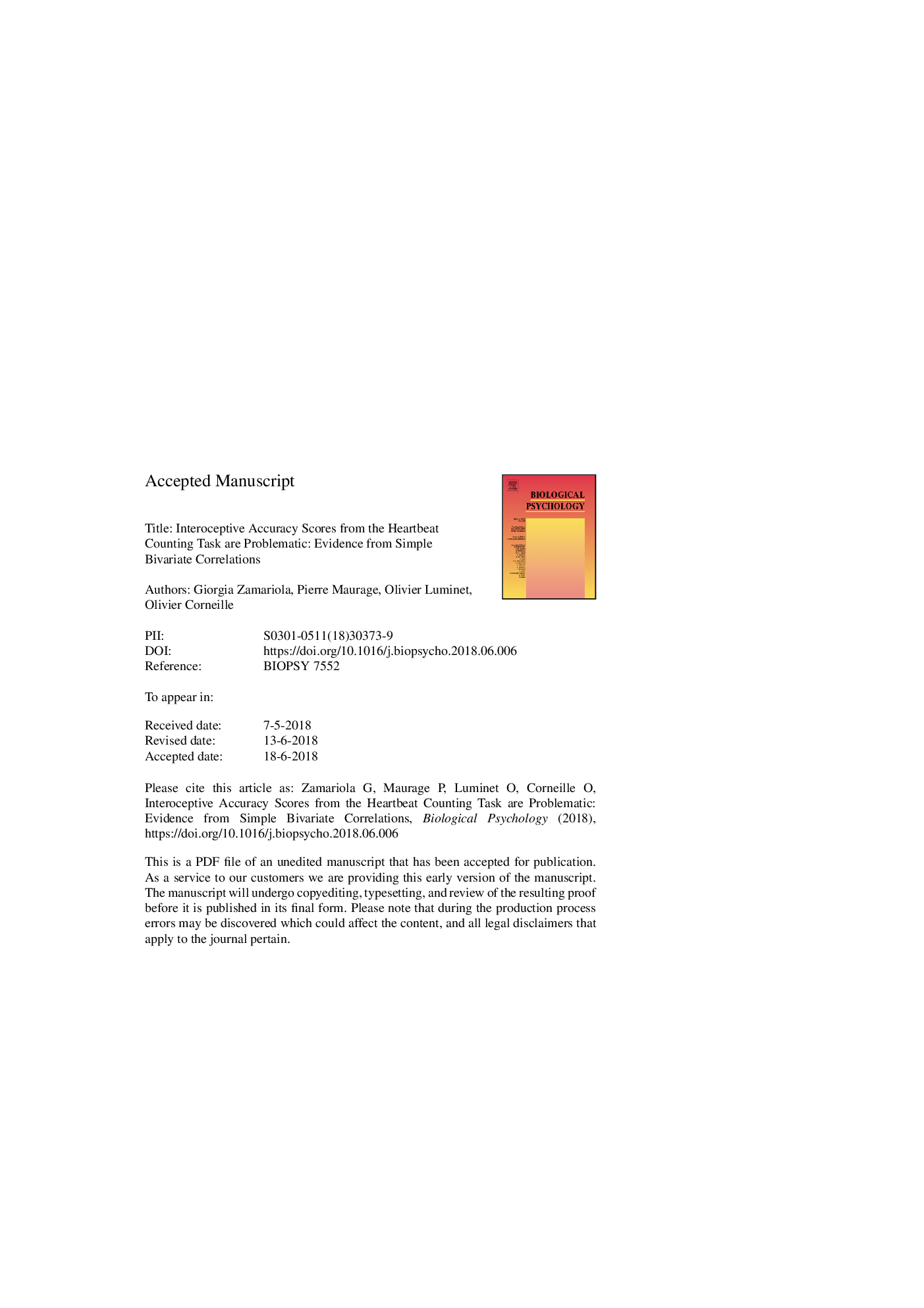| Article ID | Journal | Published Year | Pages | File Type |
|---|---|---|---|---|
| 7278040 | Biological Psychology | 2018 | 22 Pages |
Abstract
Interoception, the capacity to perceive internal bodily states, is thought to influence cognitive, affective and interpersonal functioning. It is frequently assessed using the heartbeat counting task, introduced recently in interoceptive research. In this task participants are requested to count their heartbeats without relying on external cues. Interoceptive Accuracy (i.e., IAcc) scores are then computed based on absolute comparisons between actual and reported heartbeats. In a large sample of participants (N = 572), we observed that, whereas IAcc scores are meant to be theoretically agnostic to error type (i.e., over- or underestimation of heartbeats), these scores massively (i.e., > 95%) reflect under-reports. Of concern too, the correlation between actual and reported heartbeats is low overall (râ¯=â¯.16), varies non-linearly across IAcc score quantiles, and suggests undistinguishable interoceptive capacities within the top 60% IAcc scorers. We also found that IAcc scores, which are conceptually independent from actual heart rates, are structurally bound to them. Finally, we show that IAcc scores vary across the time intervals used in the task. We encourage researchers using this score for studying cognitive and emotional processes to reconsider its meaning.
Keywords
Related Topics
Life Sciences
Neuroscience
Behavioral Neuroscience
Authors
Giorgia Zamariola, Pierre Maurage, Olivier Luminet, Olivier Corneille,
